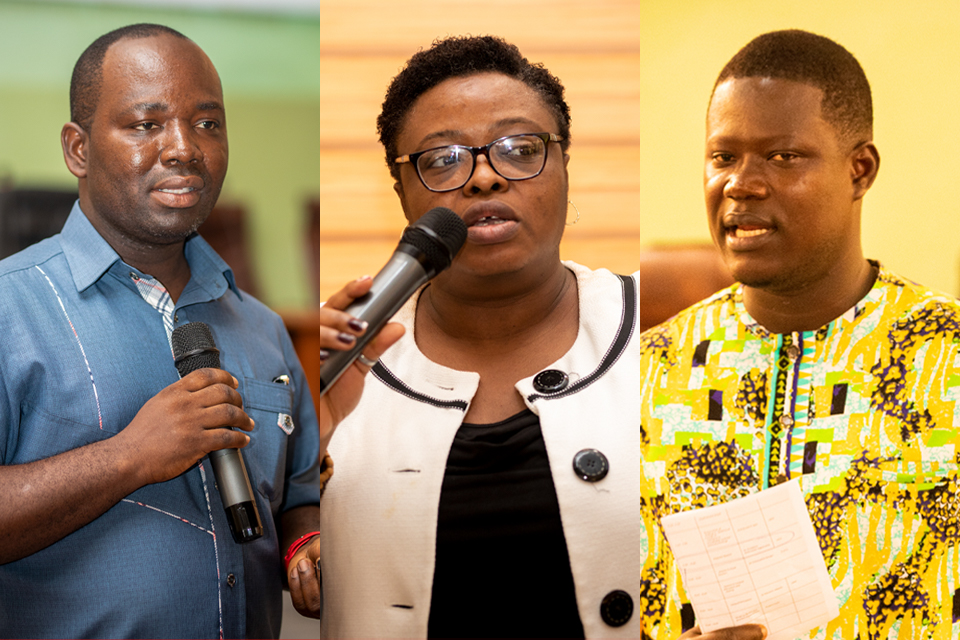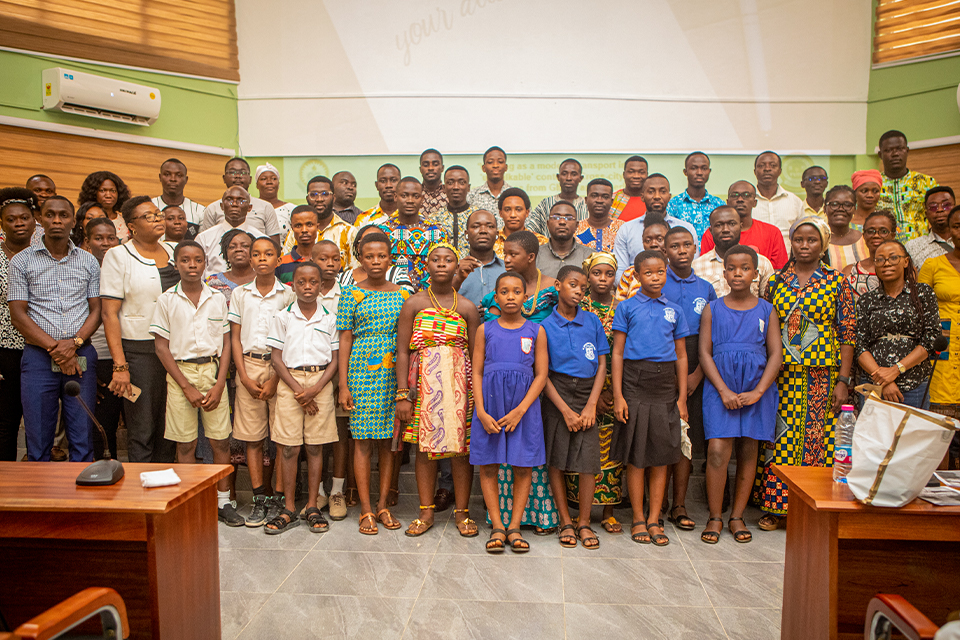UEW & FUTO GIANT Research Team Presents Project Findings to Stakeholders

In a collaborative research effort between the University of Education, Winneba (UEW), and the Federal University of Technology, Owerri (FUTO), a joint team of researchers has hosted a symposium at the Cape Coast Metropolitan Assembly Hall to unveil pivotal findings from their project, "Walking as a Mode of Transport in 'Unwalkable' Contexts: Cross-City Experiences from Ghana and Nigeria (GIANT)."
The symposium, attended by local officials, policymakers, academics, students, and media professionals, shed light on the challenges and opportunities surrounding pedestrian infrastructure and walking habits in sub-Saharan Africa.
Led by Prof. Enoch F. Sam and Dr. Prince Kwame Odame from UEW, along with Dr. Chinebuli Uzondu and Dr. Christopher Ikeogu from FUTO, the research team delved into the intricate fabric of everyday walking practices.
"The insights gleaned from our study underscore the urgent need for policy reform and infrastructure development to prioritise walking as a sustainable mode of transportation," remarked Prof. Sam during the presentation.
The project, which addressed the scarcity of literature on pedestrian experiences in the region, brought to the forefront the indispensable role walking plays in the daily lives of citizens across Ghana and Nigeria. "Walking is deeply woven into individuals’ daily routines; walking holds cultural and communal significance," emphasised Dr. Prince Kwame Odame.
Despite walking accounting for a staggering 50–90% of daily journeys in African cities, the researchers revealed that only 21 out of the 54 African countries had established walking policies and plans. "The lack of attention to walking infrastructure is a glaring oversight that needs to be rectified to ensure equitable access to transportation," the researchers asserted.
Among the key findings were the persistent legislative marginalisation of walking, inadequate pedestrian infrastructure, and the challenges faced by pedestrians including the lack of sidewalks, malfunctioning lamps, hostile motorists, and clogged gutters. "Walking is not just about getting from point A to point B; it is about creating safe and accessible pathways for all members of society," researchers stated.
The researchers emphasised the need for concerted efforts to prioritise walking infrastructure and integrate it with other modes of transportation. "Walking transcends mere transportation; it is intertwined with environmental conditions, economic realities, cultural norms, and health concerns," they noted.
The researchers proposed a series of recommendations aimed at addressing the identified gaps, including the allocation of funds for the development and maintenance of pedestrian-friendly infrastructure, strategic installation of speed bumps and pedestrian crossings, and enforcement of traffic laws.
The symposium concluded with a call for inclusive forums where local stakeholders, community members, and urban planners can collaborate to envision the future development of pedestrian infrastructure.
Prof. Enoch F. Sam (project lead/principal investigator) and Dr. Prince Kwame Odame were the researchers from UEW, while Dr. Chinebuli Uzondu and Dr. Christopher Ikeogu were members of the project from Nigeria. Dr. Festival Boateng, University of Oxford, UK, and Dr. Emmanuel Mogaji, Keeler University, UK, were also external partners on the project.
As sub-Saharan African cities continue to grapple with urbanisation and transportation challenges, the insights gleaned from the GIANT project offer a beacon of hope for creating more walkable and sustainable urban environments.









